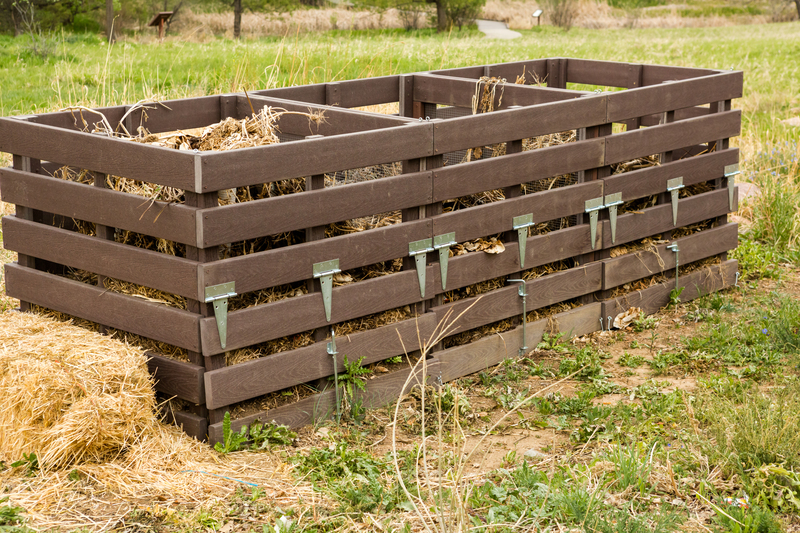Clever Tips for Budget-Friendly Bulky Waste Management
Bulky waste management is an essential part of keeping your home and community tidy. From old furniture and mattresses to appliances and garden debris, disposing of large, unwanted items can pose both logistical and financial hurdles. However, effective and economical large junk removal doesn't have to break the bank. In this article, you'll discover clever tips for budget-friendly bulky waste management that save money, time, and help protect the environment.

Understanding Bulky Waste & the Challenge
Bulky waste--also referred to as large item waste or oversized refuse--includes household objects that are too large for regular trash collection, like:
- Old sofas, chairs, and tables
- Mattresses and box springs
- White goods (appliances like refrigerators, washing machines, ovens)
- Large electronics
- Carpets and rugs
- Garden and yard waste (branches, logs, fencing)
The sheer size and weight of these items make them challenging to dispose of. Many municipalities charge extra for collection or require special pickup services. In addition, improper bulky waste disposal can lead to fines or environmental harm. Hence, finding cost-effective bulky item disposal strategies benefits both your wallet and the planet.
Planning Ahead for Cost-Effective Bulky Waste Removal
Smart planning is the cornerstone of affordable large waste management. Below are several forward-thinking steps to minimize costs:
1. Take Inventory of Your Bulky Waste
- List every oversized item you need to discard.
- Group items by material (wood, metal, textiles, electronics, etc.).
- Estimate the size/volume for easier transportation and removal planning.
Understanding exactly what you need to dispose of will prevent unplanned expenses and streamline the removal process.
2. Research Local Bulk Pickup Options
- Contact your local municipality to inquire about scheduled bulky item collection days. Many cities offer a limited number of free pick-ups annually--take advantage of these when possible.
- Some nonprofit organizations offer complimentary large item pick-ups if the items are in reusable condition.
Tip: Check online or call city waste management services for the most updated rules and schedules. Missing deadlines might mean costly private services.
Smart Sorting and Reuse: Reduce Bulky Waste Costs
A significant portion of bulky household waste can be reused, recycled, or repurposed. Here's how to reduce removal expenses while helping the environment:
1. Donate Usable Items
- Nonprofits and charities often accept gently used furniture, appliances, and even electronics.
- Online marketplaces (such as Craigslist, Freecycle, or Facebook Marketplace) can connect you with individuals seeking free items for upcycling or repair.
Donating isn't just budget-friendly--it can also be tax-deductible and extends the lifespan of your goods.
2. Sell or Swap Bulky Items
- Host a garage sale or yard sale for large objects.
- Use community swap events to trade bulky items you no longer need.
Selling or trading items can turn waste into extra cash while sparing you disposal fees.
3. Upcycle for Creative Reuse
- Transform old furniture into new pieces (e.g., turning a door into a table).
- Use broken electronics for parts or creative art projects.
This DIY approach not only keeps costs low but adds unique personal touches to your home.
Cost-Saving Bulky Item Disposal Methods
For items you can't reuse, upcycle, or donate, these smart disposal methods help keep expenses minimal:
1. Community Clean-Up Events
- Participate in neighborhood-wide clean-up days--often sponsored by local governments--with free or discounted bulky waste drop-off.
- Coordinate with neighbors to share transportation and disposal costs if allowed.
These events are announced a few times a year, so plan your disposal schedule accordingly for the best rates.
2. Find Bulk Waste Collection Discounts
- Some cities offer discounted rates for scheduling multiple items for pick-up on a single day rather than as separate requests.
- Private waste haulers may offer lower rates outside peak times or for curbside placement.
Scheduling efficiently can result in major savings, especially with large-scale home clear-outs.
3. Explore Drop-Off Centers
- Many local recycling centers or landfills accept bulk items at low fees or for free, depending on their policies and your residency.
- Call ahead to verify restrictions, acceptable materials, and pricing.
Transporting waste yourself usually costs less than arranging individual pickups.
Renting Equipment for Affordable Large Trash Removal
1. Rent a Truck or Trailer
- If you have multiple large items, renting a small truck or trailer for a few hours can be less expensive than paying for multiple commercial hauling trips.
- Ask friends or neighbors to share truck rental and split transportation fees.
2. Use Community Resources
- Check with your municipality or local library for tool or truck loan programs, often free or at minimal cost to residents.
- Some neighborhoods offer tool-lending libraries, perfect for those occasional big tasks.
3. Pool Resources with Neighbors
- Coordinate a "bulk waste day" with your street or building. Sharing dumpster or bin rental costs provides significant savings for everyone involved.
Cost-Effective Bulky Waste Management for Businesses
Companies also struggle with large-scale waste removal. Here are a few ways commercial ventures can save:
- Negotiating with Waste Haulers: Establish regular, scheduled bulk pickup plans for better rates.
- On-Site Sorting: Keep recyclables and reusable items separate to cut disposal volume and fees.
- Partner with Charities or Local Artists: Donate materials or surplus equipment, turning waste into community resources.
- Employee Bulk Drop-Off Days: Allow staff to bring household bulky items to work during special drives, sharing disposal costs as a benefit.
Tip: Local business alliances may provide bulk waste disposal services at group rates--ask around!
Environmental Benefits of Responsible Bulky Waste Handling
Choosing eco-friendly bulky waste solutions isn't just about saving money--it supports a cleaner, greener world. Here's how:
- Reduces landfill use: Every item recycled, reused, or repurposed means less trash at the dump.
- Conserves resources: Donated and upcycled goods reduce the need for new materials and manufacturing.
- Prevents pollution: Proper appliance disposal keeps hazardous chemicals out of soil and water.
By adopting the practices outlined here, you not only keep bulky waste management affordable, but also contribute to a more circular, sustainable local economy.
Common Mistakes to Avoid With Bulky Waste Disposal
-
Putting items on the curb without scheduling pickup:
Most cities fine residents for leaving large items outside scheduled collection times. -
Mixing hazardous materials with bulk trash:
Many electronics or appliances contain dangerous components that need special processing. -
Overlooking community resources:
Failing to check for free pickups, drop-off events, or donation programs can result in unnecessary expenses. -
Ignoring recycling or reuse:
Sending everything straight to the landfill wastes resources and misses out on possible savings.
Being aware of these pitfalls helps you avoid additional costs and keeps your large item waste management on track.

Future-Proofing Your Bulky Waste Strategy
Stay ahead of clutter and expense by integrating these proactive habits:
- Buy less, buy smart: Choose durable, multi-purpose furniture and appliances that last longer and are easier to disassemble for recycling or donation.
- Plan annual declutters: Schedule a yearly review of large possessions to prevent accumulation and minimize future disposal costs.
- Stay informed: Follow updates on local waste management rules and new recycling technologies.
Conclusion: Save Money, Save the Earth
Budget-friendly bulky waste management isn't just possible--it's within everyone's reach. By planning ahead, leveraging community resources, focusing on reuse and recycling, and avoiding common mistakes, you can minimize the financial and environmental cost of disposing of oversized household or commercial items.
Incorporate these tips and share them with neighbors or colleagues, and you'll be part of a smarter, greener, and more economical approach to large waste challenges. For further information, contact your local waste authority, participate in clean-up events, or visit resources like the Environmental Protection Agency website for official disposal guidance.
Remember: Every item responsibly managed is a win for your budget--and for the planet!
